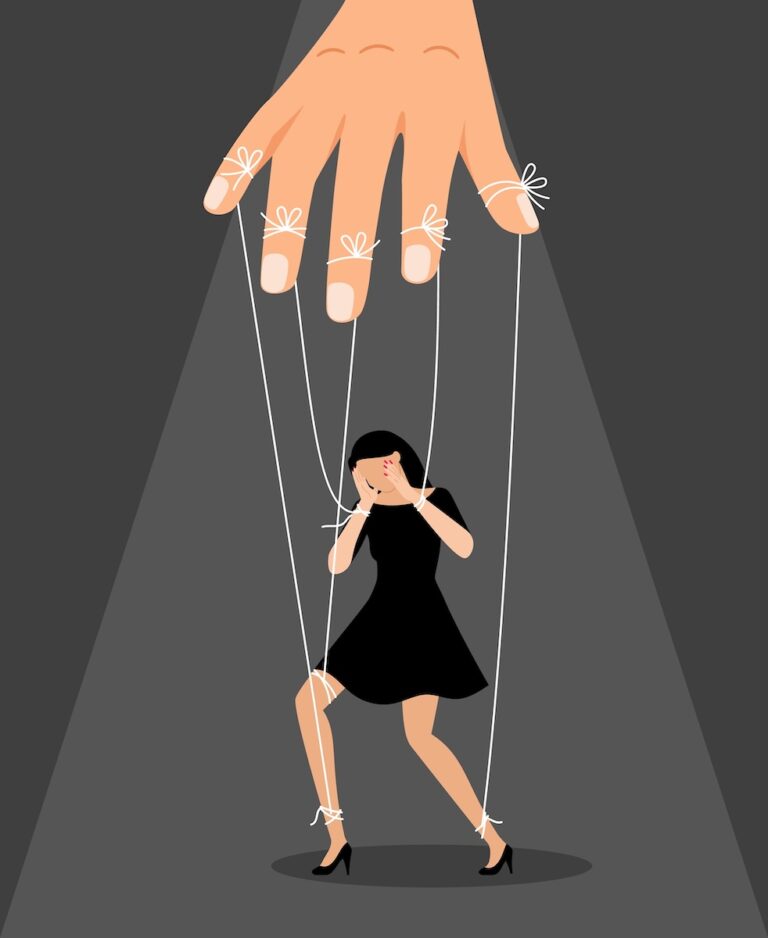Most People Have Terrible Communication Skills and Dislike Those Who Don’t.
In Communicating, Be Yourself, All the Time.

Not telling people the truth about who you are and what you want and need is one of the interpersonal and communication skills people get wrong, and I’m sick of it.
Trying to communicate with one of these Titans of Allusion and Vagueness is frustrating, and asking them for information is like squeezing the juice out of a log. Do they need help with M? Do they want to do X, Y, or B? Would they like to go to K? How do they feel about Z? Do they want G or V? Whatever happened with that thing they said they would do? Whatever answer they give, if they give you one, it may be disingenuous fluff and/or a deflection designed to get the attention off of them.
Their non-answer answers are gauged not to disappoint or upset, to avoid negative judgment and scrutiny, and to keep their actual views hidden, especially if they think you won’t like the answer. They are incapable of a healthy relationship and can only be surface friends with most. They are deeply known or close friends with virtually no one — they usually allow their true feelings to be known to one or two unlucky ones who see the depth of their disappointments and resentments.
I was the human information garbage dump for my mother, for example, who acted like a saint to all of her friends while telling me the ugly truth about how she felt about everyone and everything. It was amusing for 50-plus years to hear the many ways she could dislike something, but I finally had enough of the negativity and could barely be around her when she died at age 101 in 2020.
Engaging in this ridiculously terrible form of poor communication is part of the pleaser personality. What do these people want, and who are they? We’ll never know because they won’t allow us to know. Safely tucked behind their false persona of niceties, the super-safe tone of voice, the nonverbal cues like facial expressions, and lack of eye contact reveal a false Miss. or Mr. America plastic smile that covers an insecure underbelly.
Their biggest fear is that underneath the shine and everything-is-fine persona, you may see who they are: a scared, angry, unsatisfied, human-hating life, and just trying to survive. They hate life because they put others before themselves and rarely get their needs met in return. The only way they’ll ever tell you what they think and feel is if there was a cocked gun to their temple, and even then, if they survived, they’d deny that they meant it. The nonverbal cues these social phonies put off tell you to stay back, and the only conversations allowed are things that don’t matter, like the petunias outdoors or the recent college football game, but then, only if you’re rooting for the same team.
Dear Old Mom: World Class Phony.
My mother deeply resented when people picked things out for her or made decisions regarding her without her input, but told no one but me. She was highly dependent on others but would gripe endlessly to me about how much she hated whatever item someone gave her, all in a spirit of generosity and trying to help.
If you bought her the most expensive car of comfort and luxury, she would hate it for life if she didn’t get a say in what car she would be getting. Because of this, I called her the Princess and the Pea. She might find a little lump in the seat, the mattress, or an unfindable glitch in the volume level on the TV someone had given her. Some tiny thing that would make her miserable.
Before I moved back to my home state to be near my mother in 2012, my brother or his wife would buy her things like shoes, a television set, or a mattress whenever she complained about the one she had, and she would always hate them, creating the same problem again. She never told them how much she hated others picking things out for her because phony pleasers would never do that; they might appear ungrateful. To their faces, she was gracious and appreciative; I was the one who would hear about the products that ruined her quality of life, even sending letters to mattress companies and television manufacturers or whomever at her behest to try and get replacements. I’m sure they thought we were crazy. As far as I could tell, these things never had any issues. I slept like a lamb on the bed described as a torture chamber and enjoyed watching “the awful piece of junk” on the perfectly fine television with her when I was there, but this is how these people operate.
My niece, carrying on Grandma’s legacy.
Phony people go into anaphylactic shock at the idea of being a transparent and open communicator and disappointing people or causing anyone or themselves any discomfort. They won’t speak up for themselves because that might make you uncomfortable. They won’t ask for what they need or want because that is perceived as selfish, and you might think ill of them. They will pretend they like what you say and do while harshly judging you internally because they can’t abide even the mildest form of confrontation or discord, but the next time they see you, they may cross the street.
One of my nieces once confessed that she told people what they wanted to hear, regardless of their discussion.
“It’s easier,” she shrugged. “I act like all is well, even if I hate their guts.”
The scary thing about this is that she has revealed that she might even hate my guts, but would never let on that she did. What kind of time-wasting, ridiculous nonsense is this? I prefer to have at least a hint of where I stand with people, but this is the creepy side of pleasers. My mother’s next-door neighbor at the retirement home loved her dearly, and when I came to visit, she would tell me how much she adored her and that my mother was her best friend. As soon as she’d leave, my mother would tell me, “She drives me up the wall! I wish she’d leave me alone!”
Healthy people.
Being vulnerable means showing up as authentic; what you see is what you get. If my mother had been that way, she would have told her friend that she’s pretty much a loner and can only handle bits and pieces of quality time, or kindly told my brother not to get her another big-ticket item or personal things like shoes without her input. But this will not happen with these fake rosy folks who pretend all is well while their rage of unmet needs bubbles underneath.
As I have written at least 287 times, outwardly cheerful pleasers and go-along people are actors playing roles. They won’t advocate for themselves because they wrongly believe it is wrong to do so, so they sit around being pissed at everyone, including themselves. Sure, they know something is wrong; they just aren’t sure what it is. Why can’t people just read their minds? They sincerely believe this is how they are supposed to be living. It’s what humans are supposed to do, they think. But since doing all that self-sacrificing and faking happiness feels so bad, could they be in error?
Probably because of my mother, in my personal life, I have almost lost my ability to be patient with those who beat around the bush, hem and haw, and never get to the point. I am trained to see things and can sense the people-pleaser persona in any room, to my detriment, because my annoyance starts to build. Then, I became an actress, acting as if I didn’t see it, because it’s not my place outside my office to say or do anything about it. Imagine if I tried to instruct and fix my personal friends, and what a disaster it would be.
The crux of my frustration is that I see the pleaser, and the pleaser is not in therapy or working on themself, and any dealings I have with them will continually be the circular, “Well, I don’t mind doing it, are you sure that’s okay? You don’t have to, I know you’re busy, let me do it, you really want to? Well …”
Let me be clear: It is wrong of me to be frustrated with this. I need to work on it because, in my recovery from complex trauma, I must accept people where they are, the way they are. I have to dig deep to find out why this pushes my buttons of late, and I think it hails back to the helplessness I felt with my mother — I couldn’t get away from her; she was my mother, she needed me, she was old and needed people, I was her person, and I felt trapped in some sense.
As a therapist, I am not triggered by this dynamic at all. These people are coming to me for assistance in having a better relationship with themself or in a relationship. When I point it out as a dysfunctional trait contributing to ineffective communication, most people realize quickly what a heavy burden it has been and nervously proceed to dismantle it. One of the most satisfying things I experience is the relief they feel when showing their true selves to the world. The sky doesn’t fall, to their amazement. Once that relief is felt, people won’t return to the ridiculousness of the language barrier of fluffy talk.
My own anger.
What has become crazily ironic to me is that I have worked on myself for decades, learning all the things I write about in my blogs. I read books, study, and research, took workshops, studied spirituality, and listened to podcasts and videos. I have found great relief in applying the skills I have learned to be healthy for a person as an individual and in a relationship. I live the best way I know how.
The price for this is that I am criticized as being direct and candid when I am diplomatically and respectfully trying to practice good communication skills and be clear about what I mean. How sad that so many people can only handle fluffy, meaningless, happy talk, not information revealing true thoughts and feelings. I feel angry that being healthy and an effective communicator is looked down upon, as if the underlying idea is that being me isn’t acceptable or a bad thing.
I notice the off-putting nonverbal signals and the communication breakdown that often comes next. As soon as I realize my truth makes a person uncomfortable, I won’t have much else to say, no matter how diplomatically it was posed. What’s the point? I’m being negatively received, and the last thing I want is to inflict myself on people and get that feeling I have said the wrong thing, whatever that is, even if they are the ones with the problem.
The question is, should I plow on through and be me because I know they are dysfunctional, or pull back and not be me, withdrawing and letting everyone else take the floor? Sadly, knowing that people can’t handle transparency, I most often choose the withdrawal strategy as in the highest interest of the group.
I’ve written about why I don’t have that many close friends, and that, in a nutshell, is why. I find that living a healthy mental and emotional life, though the right thing, is to be a lonely place. I see the dysfunction out there, and people know I see it, which doesn’t put them at ease, I’m sure, but I genuinely judge not.
People are right where they choose to be, whatever that is, and I accept it. However, this is the price I pay for being myself and being free of others’ judgments and opinions. Unfortunately or fortunately, my emotional intelligence informs me that I can only be my full-throttle self with very few people. If I were that way more often with more people, I’d have that moment made famous by Jack Nicholson’s character, US Marine Col. Nathan R. Jessep, in the movie A Few Good Men, who said most people “Can’t handle the truth.”
Most people need the fluff because they don’t want to feel uncomfortable, even for a nanosecond, and it is difficult to understand why my truth makes people feel that way. I don’t talk about verboten subjects, initiate unwelcome or difficult conversations, or make other common mistakes people make while conversing; I am me. What you see is what you get, and I experience the discomfort it causes.
The phenomenon of not wanting to be uncomfortable.
Somewhere along the line, most humans decide they want to arrange their lives so they don’t feel uncomfortable. It is a codependent trait developed from the painful experiences of childhood developmental trauma that causes us to adjust in this way.
When we are children, we are black-and-white thinkers, so we decide not to put ourselves in uncomfortable positions at all, if possible. The problem is that to make it in life and do the things we’d like to do, we have to be uncomfortable sometimes. So, as adults, we should be able to use our abstract thinking skills, shifting into seeing the gray area and middle point between avoiding discomfort all the time or never.
For example, I would not want to go skydiving because it would make me very uncomfortable, but luckily, that is not required in life. What is required in life is feeling the discomfort of going to school, taking a test, giving a speech, going to the doctor or dentist, getting disciplined, applying for a job, doing interviews, and dealing with constructive criticism from a supervisor while sitting for a performance review. What is optional but might fix a problem or take you to where you want to be in life is going back to school, having a difficult conversation with someone, going to therapy, admitting when you’re wrong, facing ugly truths about yourself, being open to self-improvement, asking for help, telling someone what you need, ask for a promotion or raise, learning a skill you’re afraid you can’t achieve, approaching someone to mull over a good idea and much more. In this last category, people tend to fail themselves the most.
What I hear in therapy too often is, “I couldn’t do that; it would make me too uncomfortable.”
“So? “ I respond, “Discomfort over doing something that might improve your life has never killed anyone I know of.”
It is childish to think we can live a superior life without feeling what I call good discomfort. Bad discomfort might be hearing someone breaking into your house. Good discomfort is marching into the boss’s office and delivering a plan to them about how you can help them while also doing better yourself. It is asking someone for coffee because you’re interested in their friendship. It is sending out 127 book proposals to agents and publishers. It is telling your partner you can’t really watch any more reality TV; it is being vulnerable to possibilities. It is the healthiest sort of risk-taking, and yes, it takes courage.
A lesson I have learned in life is to ask for things I want. My clients tell me how hard this is for them, but a long time ago, I just decided I wouldn’t sit around wishing, hoping, and wanting; I would tell people what I wanted. A boss, a professor, a parent, whomever. And what I have learned is that almost every time, I get what I asked for.
While working as a features writer at the San Antonio Express-News, I desperately and passionately wanted to write a column; it was my life’s dream. Within two weeks of starting the job, I went to the editor’s office and told him what I wanted. He laughed and said to come back in a couple of years. I did, this time with three sample columns I had written so he could see what was possible. He smiled and said, give me some time to think about this. A few months later, he said, we will give you a chance.
After I had written the column for a few months, a woman in my department approached me and said, “How did you get to write a column after only two years here? I have been here 9 years, and no one has handed me a column.”
“I asked for one,” I said. “Then I presented them with samples of what it would look like. Did you tell them you want a column or what it would look like?”
“No,” she said.
“Well, that’s why I got a column,” I said. “I asked.”
This is precisely what I am talking about regarding good discomfort. It is popping through the barrier of anticipatory fear and advocating for yourself. It has made my life so much more interesting and fun. It’s a risk, but to me, there is an even greater risk in not doing it because not getting to live your dream is guaranteed. Yes, you have to deal with being told no and not always getting what you want, but we are big girls and boys, and if you can comfort someone else in their disappointments, you can comfort yourself. I have learned that when life says no to what I am asking for, it’s because something better is waiting for me in the beyond. Trust in the wisdom of the universe. Not punching through the anticipatory fear blocks that.
Advocating for yourself.
I’ve had a friend in San Antonio for decades who believes things will just come to him, so he would never ask for opportunities, and I daresay that, now in his 60s, he is not where he wants to be or where he could have been. I have watched how this philosophy has worked for him; I believe he could have punched his ticket to a much higher place, but I’d never tell him that.
You get out of life and relationships what you put into it. Living in the no-discomfort zone is a disability, the same as if you could not button your shirt. Look around at the people you know who won’t get healthy, who won’t do what they are capable of, who won’t fix or leave the relationships that tear them apart, and who take the safe path with the least stress. People who want the certainty of a day like every other day, with minimal disruption.
The difference between these people and the leaders we admire, the people who change the world, the ones who are successful, the business leaders, or whomever it is that has stood out and made a positive difference, is that they punched through the anticipatory fear, they took risks, they could handle being told no, they could keep going, they unabashedly showed up as who they were, and were not swayed by the criticisms, judgment, and scrutiny of others.
If you are interested in this path, now is the right time. Take the next step, go with your gut, be yourself, don’t apologize for who you are, and don’t be deterred by naysayers or those who try to drag you back down. As you rise, people will criticize, and that’s the way that it is. We can want people to be different than they are, but that’s probably not going to happen, so you can run with them or join me and be yourself, punching through the anticipatory fear like the exhilarating game that it is.
Becky Whetstone, Ph.D., is a licensed Marriage and Family Therapist in Arkansas and Texas* and is known as America’s Marriage Crisis Manager®.
She is a former features writer and columnist for the San Antonio Express-News, and is the author of “I (Think) I Want Out: What To Do When One Of You Wants Out” published by HCI Books, distributed by Simon and Schuster, and to be released February 4, 2025.
She has worked with thousands of couples to save their marriages. She can work with you, too, as a life coach if you’re not in Texas or Arkansas. She also has a YouTube Channel called Marriage Crisis Manager where she talks about relationships. She has a telehealth private practice as a therapist and life coach via Zoom. To contact her, check out www.MarriageCrisisManager.com. Also, here is how to find her work on the Huffington Post. Don’t forget to follow her on Medium so you don’t miss a thing!
For licensure verification, find Becky Whetstone Cheairs.
If you liked this, you might also like: https://marriagecrisismanager.com/talking-and-listening-boundaries-the-key-to-healthy-communication/






